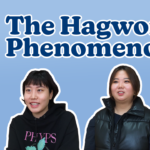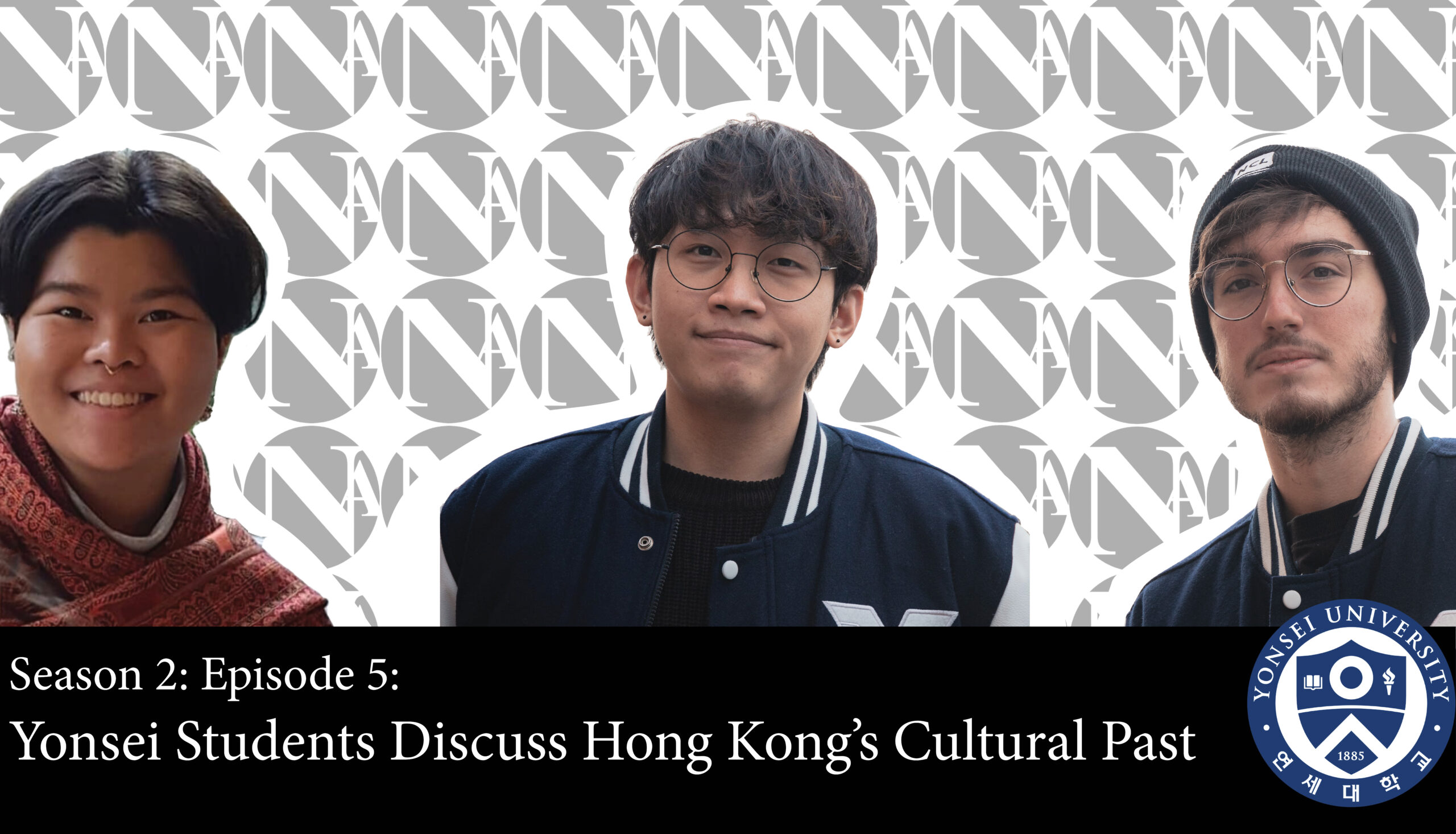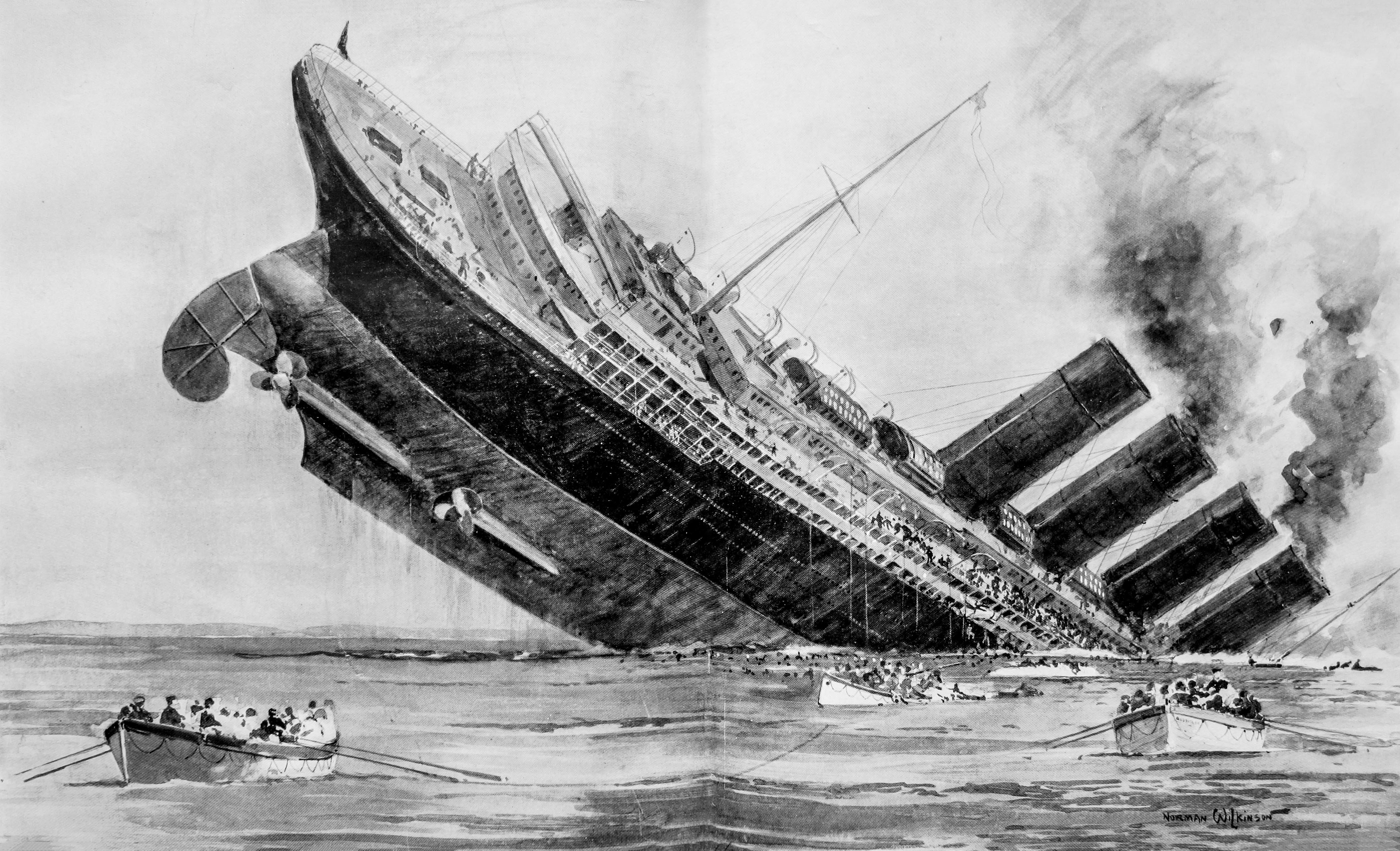Asian Americans, Everywhere All At Once
Asian Americans have long been plagued by the “perpetual foreigner” stereotype. Regardless of how many generations your family has been in the country, regardless of whether or not you are a citizen, Asian Americans are often considered hyphenated others, regularly the target of questions like “Where are you really from?” and “Where are your parents from?”
The antidote, according to mainstream Asian American discourse, is Hollywood representation, and the recent box office success of films like Crazy Rich Asians, Minari and Everything, Everywhere All At Once has been heralded as welcome progress.
But representation is not only a limited strategy, it is deeply problematic. Though on the surface it seems like an innocuous demand, representation assumes that being American is desirable. By doing so, it perpetuates an ahistorical, neoliberal assimilationist narrative that prioritizes identity politics over material change.
As Asian Americans it is time that we move beyond representation. To do so, we must look beyond the borders of America. Because though at times we may consider ourselves completely distinct from our motherlands, the truth of the matter is that America never will. Like it or not, our fate as diasporic Asians will always be linked to that of our origin countries.
The Asian American Dream
The first problem with representation as a solution to racism is that it paints the United States as a worthy project that merits inclusion in. The United States was a colonial project from its inception, and the white settlers themselves do not belong in the country, much less the Asian immigrants who arrived after. Asian Americans trying to ingratiate themselves into this colonial settler project erases the history of indigenous people of North America as well as their ongoing efforts to regain sovereignty. Many of us ourselves come from countries that have been colonized. Is becoming the colonizer really the dream?
The second problem with representation is that it perpetuates the assimilationist myth of the good, grateful immigrant. The myth of the good, grateful immigrant goes hand in hand with the myth of the American Dream: an immigrant flees their less desirable “Third World” country and comes to America where they work hard to climb the socioeconomic ladder. America represents everything their origin country is lacking: social mobility, democracy, freedom, etc.
This narrative obscures the specific, historical reasons that underlie that migration in the first place. Would the fact that America bombed your country have anything to do with your family’s immigration? And would America’s hegemonic status have anything to do with the global inequity that led to you seeking out the “land of opportunity”?
Rather than lumping our experiences under the umbrella of ahistorical “good immigrant” stories, we need to understand the global forces that led to our migration, and the existing geopolitical dynamics that continue to shape our lives, whether we like it or not.
I Am An American
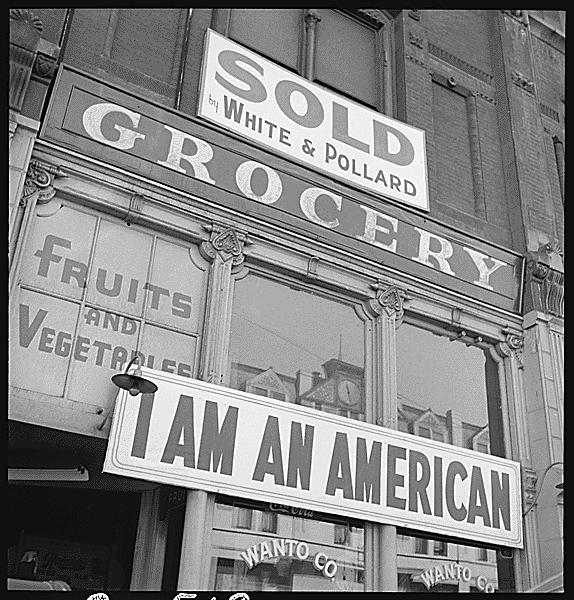
“I Am an American (9066)”. Source: mliu92, licensed under CC BY-SA 2.0.
On December 7, 1941, Japan launched a surprise attack on Pearl Harbor. A few months later, President Franklin Roosevelt issued Executive Order 9066, leading to the internment of Japanese Americans.
Two-thirds of the imprisoned Japanese Americans were American citizens, but their legal status didn’t matter in the face of America’s racism (note that America did not inter German or Italian Americans). Regardless of how much these Japanese Americans had assimilated to America, regardless of the contributions they had made to the country as “good and grateful” immigrants, they were treated as if they were the enemy and forcibly shepherded into prison camps.
US animosity toward Japan (and subsequently, Japanese Americans) came with upsides for other Asian Americans, namely, Chinese Americans. Though Chinese immigrants had suffered a long history of discrimination in the US, China became a “vital ally” to the US following Pearl Harbor. This shift affected Chinese Americans as well, suddenly elevating their status. In many cases, Chinese Americans sought to benefit from this change, infamously wearing pins declaring their Chinese identity (or “I Hate [the Japanese] Worse Than You Do”) so as to avoid being mistaken for Japanese Americans.
This geopolitical shift translated to further material benefits for Chinese immigrants, namely with the repeal of the Chinese Exclusion Act. Far from being a nobly humanitarian act, the Roosevelt administration sought to repeal the bill because it was worried it would negatively affect their relations with China, a now useful ally against their enemy, Japan.
In other words, the Roosevelt administration thought it politically expedient to cater to Chinese Americans and Chinese immigrants in order to secure their security interests in East Asia. It was not legal citizenship nor the level of assimilation that damned Japanese Americans or protected Chinese Americans. Their fate was decided by America’s relationship with their origin countries, China and Japan, on the global stage.
Not a relic of history, this mirror relationship between motherland and diaspora has continued without interruption to the present day.
Yellow Peril 2.0
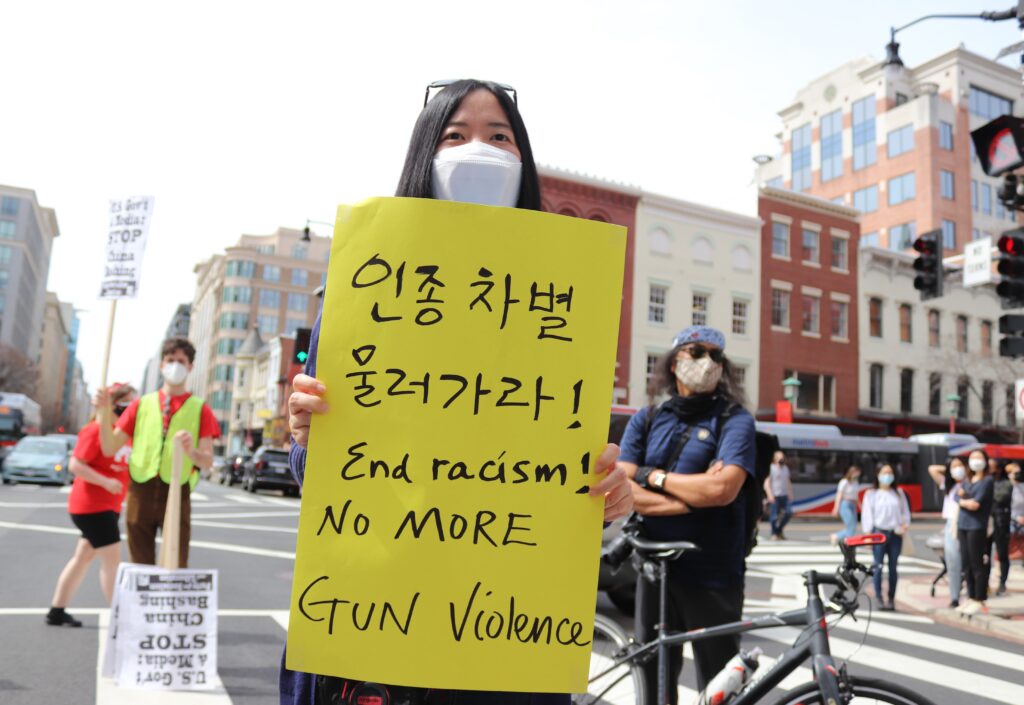
“IMG_1997a”. Source: Elvert Barnes, licensed under CC BY-SA 2.0.
According to Stop AAPI Hate, over 11,400 hate incidents against Asian Americans were reported between March 2020 and March 2022.
Not isolated incidents happening in a vacuum, these attacks are a direct result of the US’ historical and ongoing Sinophobia. From prominent US leaders calling COVID-19 “kung-flu” and the “Chinese virus” to American media outlets publishing fear-mongering articles about China’s military budgets (omitting the fact that the US’ military budget is still 3x larger) and their authoritarian and backwards ways. Unfortunately nothing new, the US’ Sinophobia is just Yellow Peril 2.0. In other words, “the ways in which Asians in the United States are racialized are inseparable from American foreign policy.”
It’s important to not just lump these hate crimes under the vague and broad category of “Asian hate” or simple prejudice. There are specific historical, social and structural contexts that shape our experience as the Asian American diaspora, and in order to truly address that racism that is a part of this experience, we need to tear it out by its roots.
For instance, while the fetishization of Asian American women is a commonly known and discussed topic, it’s often treated as an isolated example of racism or prejudice, divorced from its source. However, this type of racism has deep historical roots in the sexual violence perpetrated by US soldiers in Asian countries during wartime. When US military troops occupied Asian countries, women (especially poor women) were often forced into sex work, contributing to the “fetishization and hypersexualization of East/Southeast Asian women within the United States”.
We must not be confused about where this “Asian hate” is coming from. It is not random nor sporadic nor un-American. Rather, it’s part and parcel of a systematic and consistent American tradition of racism and xenophobia.
Hollywood will not protect you
Though we may wish to live separately from international politics and the issues of East Asian security, the truth is that these things are inextricably intertwined.
As a result, we need to educate ourselves on both our origin country’s history and current geopolitical situation rather than assuming that assimilating to America and seeking proximity to whiteness will insulate us from racist violence. Rather than connecting to our culture only through the superficial markers of something like food (boba liberals), we need to understand the historical and political forces that led to our family’s migration to the US in the first place, and how the ongoing relationship between our home country and the US affects the international world order and our own status within it.
Some people will say that representation will help with the issues I’ve outlined above. Or that, any progress is good progress. And what is the presence of more Asian faces on Netflix TV shows and Oscar-winning movies if not progress?
However, as black feminist writer and poet Audre Lorde eloquently put it, “…the master’s tools will never dismantle the master’s house. They may allow us temporarily to beat him at his own game, but they will never enable us to bring about genuine change.”
Is every bit of “progress” a useful drop in the bucket, or is it just the schemings of the hydra that is power, finding new and creative ways to maintain its grip? After all, what better way to keep people complacent than to persuade them that great progress has been made, and greater progress is on the way? We deserve to live in a world free of racialized violence, and we shouldn’t be distracted from that goal by superficial gains.
Moreover, Asian Americans need to develop a politics that goes beyond neoliberal identity politics. Our identities are not one-dimensional; we are not united with everyone who is Asian or Asian American. Should I support Asian American men who make shows about Asian Americans even if they’re sexually harassing their Asian American women actors? Should I have supported Andrew Yang’s bid for presidency even though he’s an idiot? Should I be silent about Asian American cops who stand by as their colleagues kill a Black man? We need to have clear political views informed by our historical and structural understanding of racism rather than blindly supporting Asian American people and products in the name of representation.
At the end of the day, our liberation will not be won by simply swapping out the races of the people who oppress us. Our liberation will not be won by a miniscule percentage of our population lining their pockets with Hollywood money. Our liberation will definitely not be won by begging white people to recognize our humanity by showing them that WE TOO have hot men.
As diasporic Asians, our very existence in the US is part of a larger history of migration, war and violence. Only when we equip ourselves with this historical and political knowledge can we step foot on a path of genuine liberation, not only for ourselves but for all oppressed peoples.
As Audre Lorde also said, “your silence will not protect you”.
To that I will add, Asian Americans, your assimilation will not protect you.
a
a
a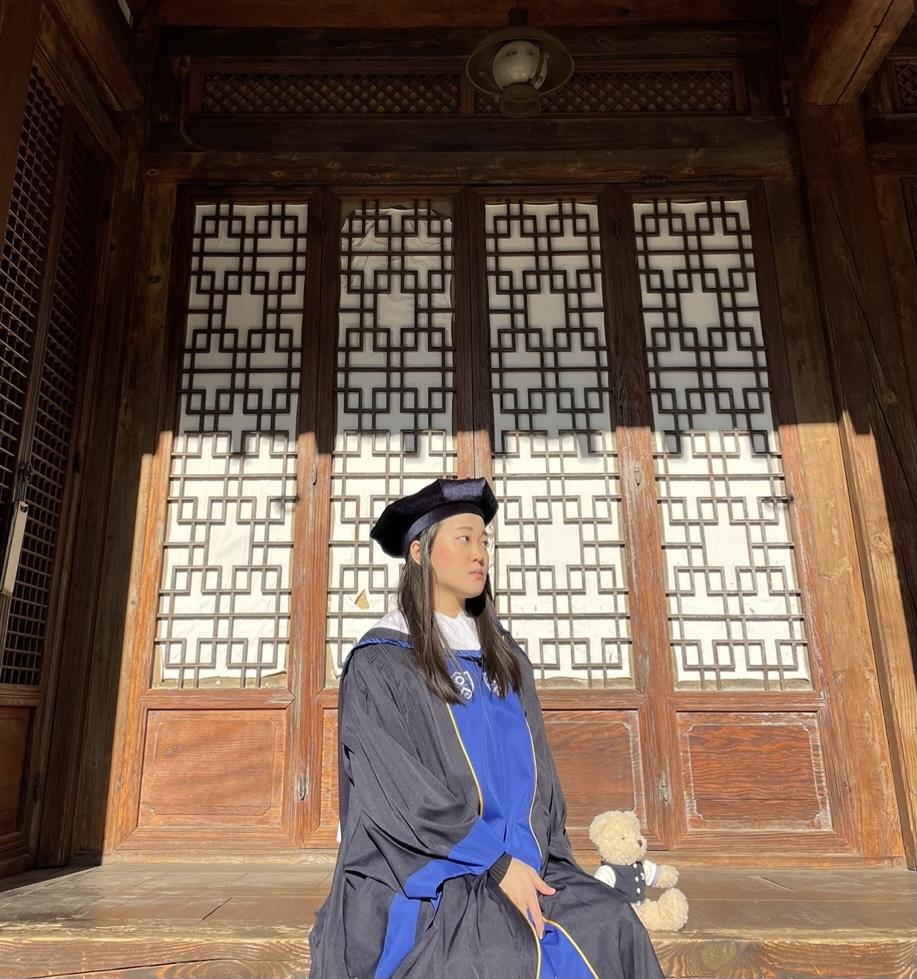
- “I Love My Body”: Hwasa and Female Empowerment in K-Pop and Korean Society - May 6, 2025
- English Fever in South Korea - February 24, 2025
- South Korea’s Medical School Expansion – Cure Worse than the Disease? - October 20, 2024



